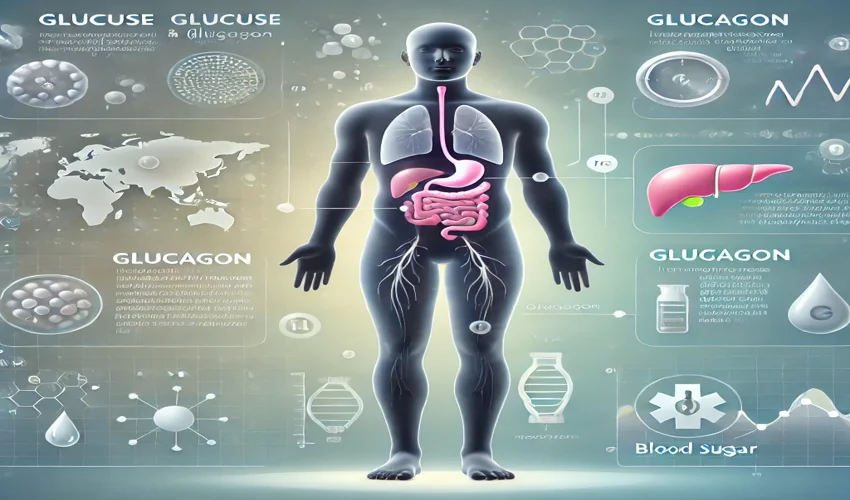In the world of healthcare, the term “diabetes” is commonplace. However, while many are familiar with diabetes mellitus, which is frequently associated with high blood sugar, fewer are acquainted with diabetes insipidus. Both share the prefix “diabetes,” but they are distinct conditions with different causes, symptoms, and treatments. For those living with diabetes, understanding these differences is crucial.
Understanding the Basics
At its core, the word “diabetes” originates from the Greek word “siphon,” reflecting the frequent urination associated with both conditions. The key difference lies in the cause and nature of this frequent urination.
Diabetes Mellitus: The Sugar Regulator
Causes: Diabetes mellitus, often simply referred to as diabetes, arises when the body cannot effectively use glucose (sugar) due to issues with the hormone insulin. It comes in two main types:
- Type 1 Diabetes: An autoimmune disorder where the body mistakenly attacks the insulin-producing cells in the pancreas.
- Type 2 Diabetes: Characterized by insulin resistance and often a gradual decline in insulin production.
Symptoms: While symptoms can vary, common ones include increased thirst, frequent urination, unexplained weight loss, fatigue, blurred vision, and slow-healing sores.
Treatment: Management involves monitoring blood sugar levels, adopting a balanced diet, engaging in regular exercise, and possibly insulin therapy or other medications.
Diabetes Insipidus: The Thirst Enhancer
Causes: Diabetes insipidus is less about sugar regulation and more about fluid balance in the body. It arises when the kidneys remove excess fluid from the body inappropriately. This can be due to:
- A lack of the hormone vasopressin (antidiuretic hormone) which prevents excessive fluid release. This is known as central diabetes insipidus.
- Kidney’s non-response to the hormone, termed nephrogenic diabetes insipidus.
Symptoms: The main symptoms are extreme thirst and the excretion of an unusually large volume of dilute urine. The condition can also lead to dehydration and an imbalance in electrolytes if fluid loss isn’t compensated by increased fluid intake.
Treatment: Treatment approaches vary based on the cause. They can include vasopressin replacement, medications to reduce urine output, or addressing underlying issues that affect vasopressin production or kidney response.
Differentiating the Two: Key Areas of Contrast
- Root Cause: The fundamental difference lies in their causes. Diabetes mellitus is linked to insulin and sugar management, while diabetes insipidus revolves around vasopressin and fluid balance.
- Glucose Levels: One of the most distinguishable aspects is the presence (or absence) of glucose in the urine. Those with diabetes mellitus will often have sugar in their urine due to high blood sugar levels, while those with diabetes insipidus will not.
- Volume of Urine: While both conditions can result in increased urination, diabetes insipidus often leads to a more significant output of clear, dilute urine.
- Treatment Modalities: Management approaches for diabetes mellitus focus on controlling blood sugar, often involving diet, medications, and potentially insulin. In contrast, diabetes insipidus treatments are primarily centered around restoring fluid balance and may involve hormone therapies or addressing the kidneys’ response.
Why the Distinction Matters for Diabetics
For someone diagnosed with diabetes, understanding the type is crucial. Misidentifying or conflating the two can lead to ineffective or even harmful treatments. For instance, giving insulin to someone with diabetes insipidus would be unhelpful and potentially dangerous.
Furthermore, because symptoms can sometimes overlap, particularly the increased thirst and frequent urination, it’s possible for misdiagnoses to occur. A correct diagnosis ensures appropriate management, helping prevent potential complications like dehydration in diabetes insipidus or high blood sugar levels in diabetes mellitus.
Conclusion
Diabetes mellitus and diabetes insipidus, while sharing a name, are distinct entities that require unique approaches in care. As our understanding of these conditions deepens, it underscores the importance of precision in diagnosis and treatment. Whether you or a loved one live with diabetes, knowledge is power. Recognizing the differences, seeking appropriate care, and being an advocate for one’s health can make a world of difference in navigating life with diabetes.




